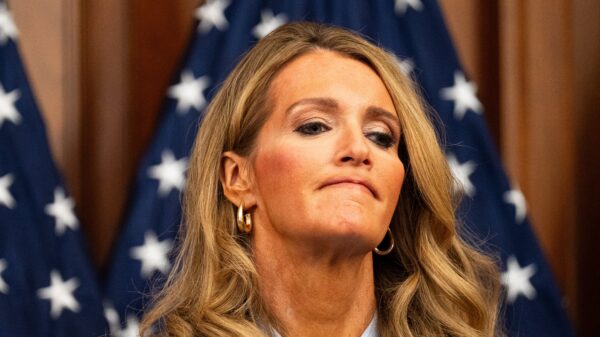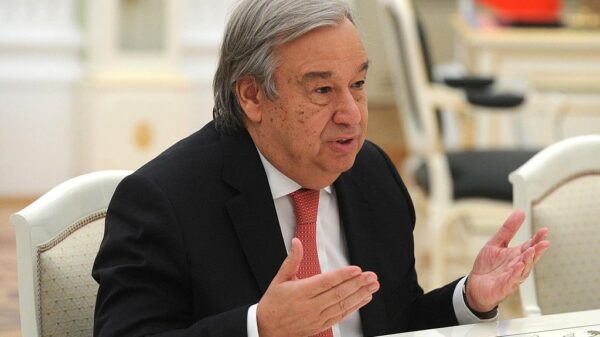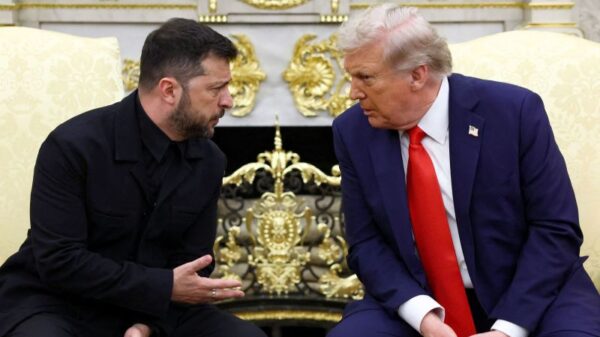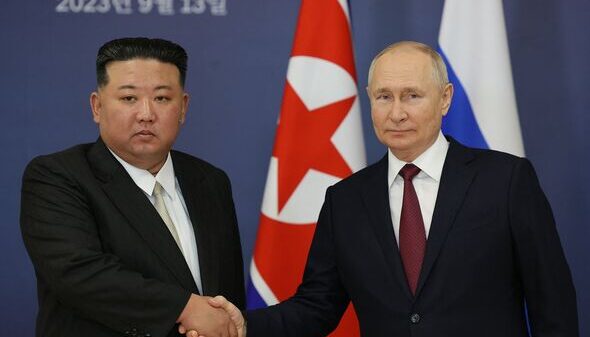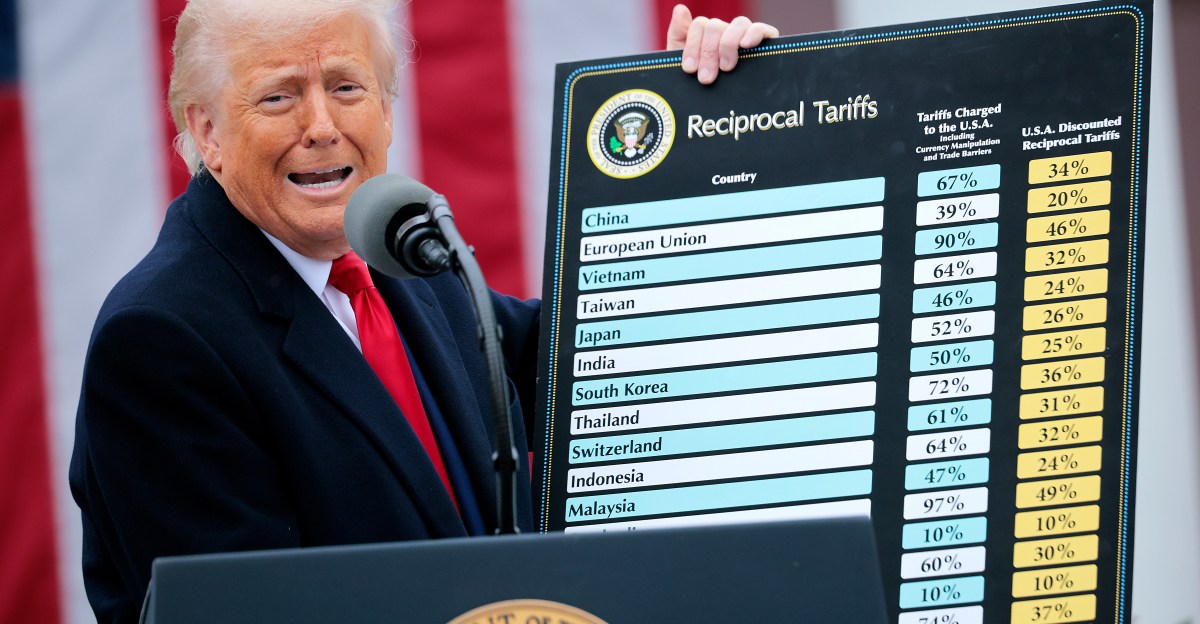UPDATE: The Supreme Court has begun hearing oral arguments today regarding the legality of President Donald Trump‘s use of emergency powers to impose tariffs on over 100 countries. This case is being described by Trump as a matter of “literally, LIFE OR DEATH for our Country,” and the implications could reshape American foreign policy significantly.
As the Court deliberates, it appears poised to challenge key aspects of Trump’s tariff strategy, which many analysts suggest could lead to a ruling against him. This decision would not only impact economic policies but could also destabilize Trump’s foreign relations, particularly as tariffs have become a cornerstone of his approach to global diplomacy.
In a dramatic twist, recent reports from the Financial Times highlight that U.S. officials are employing intimidation tactics against nations supporting a new treaty on shipping emissions, threatening to impose new tariffs. This bold move underscores how integral tariffs have become in Trump’s foreign and security strategy, aiming to leverage economic pressure for geopolitical gain.
Trump, a self-dubbed “tariff man,” believes these measures protect U.S. industries and generate government revenue, disregarding the warnings from economists who argue that consumers will ultimately shoulder the financial burden. His reliance on tariffs extends far beyond traditional economic motives, indicating a broader agenda where tariffs are used to address various global issues.
Notably, Trump has targeted countries like India for purchasing Russian oil amid the ongoing war in Ukraine and has threatened tariffs against Brazil over the prosecution of former President Jair Bolsonaro. This tactic reflects a shift from previous administrations that typically utilized sanctions, which have fewer immediate costs for the U.S. economy.
Academic experts like Henry Farrell and Eddie Fishman express concern over Trump’s approach, suggesting that using tariffs as a diplomatic tool is unconventional and may backfire. “When you’re using import tariffs as a weapon of economic warfare, you’re attempting to weaponize what is a relative weakness of the U.S. economy,” Fishman stated.
The repercussions of this tariff strategy are unfolding rapidly. While it has yielded some concessions from smaller nations like Colombia and Thailand, the long-term effects could hinder U.S. economic growth. The International Monetary Fund (IMF) has warned that tariffs could drag down global growth, pushing countries to seek alternatives outside the U.S. market.
With the Supreme Court’s decision looming, Trump’s administration is reportedly crafting legal strategies to maintain tariff impositions, even if emergency powers are curtailed. The urgency surrounding this case is palpable, as it could redefine the administration’s approach to international relations and trade.
As developments unfold, the world watches closely. The Supreme Court’s ruling could either reinforce Trump’s tariff diplomacy or force a significant policy overhaul. For now, the stakes remain high, and the ramifications of this case could resonate far beyond U.S. borders.

